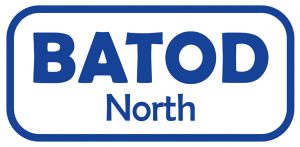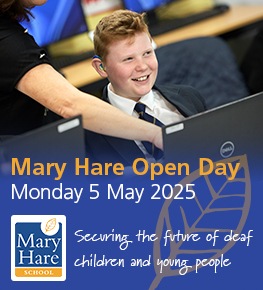BATOD North Study Day 2015
Please note: This content has been archived and therefore may no longer be up-to-date or relevant. It is kept online for your convenience. If you have any questions, please contact us.
BATOD North Study Day 2015
Here are the keynote speech and workshop summaries for the BATOD North study day “Empowering Deaf Children & Young People: Policy into Practice” to be held on Thursday 12th November 2015 at the Huddersfield Textile Centre, Red Doles Lane, Huddersfield HD2 1YF.
Keynote presentation; Gary Anderson
Gary’s address will consider the critical skills, knowledge and experiences of specialist Teachers of the Deaf as champions to develop the best provision and outcomes for deaf children in schools. He will explore opportunities to support and challenge practice in schools through a school improvement approach using the OFSTED judgement areas, whether the ToDs are peripatetic or Resource Based practitioners.
Workshops
Improving outcomes for deaf learners; Gary Anderson
Following on from his address Gary’s workshop will draw out from the current legislative drivers – Ofsted Inspection Framework and SEND 2014 reforms – the key imperatives that Teachers of the Deaf in both advisory and Resource Base capacities can utilise to support and challenge practice in schools to improve outcomes for deaf learners. Delegates will leave with a simple proforma against which they can evaluate their own practice and consider next step developments.
Pupil “Voice” in Planning Support; Clare Armitage
Sharing Rotherham HI Team’s experiences of empowering and developing deaf children and young people to participate in their support. This looks across the ages (0-) and links in with the SEND Code of Practice. The workshop will explore further ways to do this and offer participants the opportunity to share and add to their experiences. How does the “magic” happen? How can we best encourage deaf children and young people in their support and to understand their role in this?
Radical Encouragement; Isabel Russell
Radical Encouragement is an approach to developing dispositions, skills and strategies for better thinking and learning. It provides a framework of principles that can be used across the curriculum, across the age range both at home and at school, to develop independence and self-confidence. The dispositions developed through Radical Encouragement empower deaf children by increasing motivation, persistence, resilience and positive well-being to enable them to make progress and achieve positive outcomes. The workshop will involve an introduction to Radical Encouragement, information on how the Sensory Support Team in Northumberland have used Radical Encouragement as part of their development plan, a case study and hands on activities.
Self-regulation of learning; Lindsey Jones
Lindsey Jones is a Teacher of the Deaf with the South Tyneside Hearing Impaired Service. She is currently also studying for a PhD in deaf education at the University of Manchester. Her interest lies in the development of scientific argumentation with deaf children and how we can help deaf children to become reflective, independent learners. The workshop on self-regulation considers what we know about self-regulated learning in a deaf education context and how we can support these skills as Teachers of the Deaf. The session aims to provoke thought, discussion and an atmosphere of sharing challenges and good practice.
Empowering children with complex needs; Wendy Pallant
In this workshop Wendy will share some of the ideas, tools, knowledge and strategies that shape her work with multisensory impaired and deaf children with additional needs: the Communication Matrix – a framework to support language and communication at early levels’ use of technology – iPad, Penfriend; assessment tools and approaches; understanding physical and vision impairments.
Social media and deaf teenagers; Eleanor Hutchinson
This workshop will look at the ways in which deaf teenagers are using social media, based on recent research and interviews carried out with deaf young people in Sheffield and North Lincolnshire. It will examine the themes of online safety, bullying, social interaction and the challenges facing deaf teenagers. It will also provide the opportunity to discuss implications for professionals who work with deaf children, and ways in which we can offer further support to those young people who are using social media.





